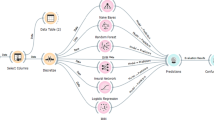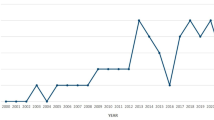Abstract
In E-Learning Systems, the automatic detection of the learners’ learning styles provides a concrete way for instructors to personalize the learning to be made available to learners. The classification techniques are the most used techniques to automatically detect the learning styles by processing data coming from learner interactions with the system. By using these classification techniques, considerable results are obtained by several approaches with various learning style models. The performance of these approaches varies from one approach to another depending on the data used. However, these approaches have some limitations related to robustness. Indeed, a common feature of these approaches is that they consider only a single course in their trials. Whereas to construct a robust classifier, a representative set of data is crucial. Subsequently, a robust approach for automatically detecting learning styles must take into account the wealth of information to be processed. Therefore, it must consider that the data have to be gathered from learners’ learning behaviors that correspond to several courses. In this paper, we propose a robust classifier which can be able to identify the learning style of the learner in E Learning System. The learning behavior of the learner is captured on varied contexts typically on varied courses appertaining to a specific subject matter. The web usage mining is used for capturing the learners’ behaviors and then, the learning styles are mapped to Felder-Silverman Learning Style Model (FSLSM) categories. Fuzzy C Means (FCM) algorithm is used to cluster the captured learning behavioral data into FSLSM categories. The experiment results show the performance of our approach although the captured data are gathered from the learners’ learning behaviors corresponding to several courses.

Similar content being viewed by others
References
Abdullah, M. A. (2015). Learning style classification based on student’s behavior in moodle learning management system. Transactions on Machine Learning and Artificial Intelligence, 3(1), 28.
Agbonifo, O. C. (2013). Fuzzy c-means clustering model for identification of students’ learning preferences in online environment. Int J of Computer Application and Information Technology, 4(1), 15–21.
Almohammadi, K. a., Alzahrani, A., Alghazzawi, D., & Aldabbagh, G. (2017). A type-2 fuzzy logic recommendation system for adaptive teaching. Soft Computing, 21(4), 965–979.
Biggs, J. B. (1987). Student Approaches to Learning and Studying. Research Monograph. Australian Council for Educational Research Ltd., Radford House, Frederick St., Hawthorn 3122, Australia.
Chakurkar, M., & Adiga, D. (2014). A web mining approach for personalized E-learning system. International Journal of Advanced Computer Science and Applications, 5(3), 51.
Ciloglugil, B. (2016). Adaptivity based on felder-silverman learning styles model in e-learning systems. 4th International Symposium on Innovative Technologies in Engineering and Science, ISITES, (pp. 1523–1532).
Coffield, F., Moseley, D., Hall, E., & Ecclestone, K. (2004). Should we be using learning styles? What research has to say to practice. London: Learning and skills research centre.
Crockett, K., Latham, A., Mclean, D., & O'Shea, J. (2013). A fuzzy model for predicting learning styles using behavioral cues in an conversational intelligent tutoring system. 2013 IEEE international conference on fuzzy systems (FUZZ-IEEE) (pp. 1–8). IEEE.
Dung, P. Q. (2012). An approach for detecting learning styles in learning management systems based on learners’ behaviours. International Conference on Education and Management Innovation, 30, 171–177.
El Aissaoui, O., El Madani, Y. E., Oughdir, L., & El Allioui, Y. (2019). A fuzzy classification approach for learning style prediction based on web mining technique in e-learning environments. Education and Information Technologies, 24(3), 1943–1959.
Felder, R. M., & Silverman, L. K. (1988). Engineering education, 78(7), 674–681.
Felder, R. M., & Spurlin, J. (2005). Applications, reliability and validity of the index of learning styles. International Journal of Engineering Education, 21(1), 103–112.
Feldman, J. a. (2015). Automatic detection of learning styles: State of the art. Artificial Intelligence Review, 44(2), 157–186.
Garcia, P., Amandi, A., Schiaffino, S., & Campo, M. (2007). Evaluating Bayesian networks’ precision for detecting students’ learning styles. Computers & Education, 49(3), 794–808.
Gardner, H. (1993). Frames of mind: The theory of multiple intelligences. 2da. New York: BaSiç Book S.
Graf, S. (2007). Adaptivity in Learning Management Systems Focussing on Learning Styles. PhD thesis, Vienna University of Technology, 9801086 Neulinggasse 22/12A 1030, Vienna.
Graf, S., & Kinshuk. (2010, August). Using cognitive traits for improving the detection of learning styles. 2010 Workshops on Database and Expert Systems Applications, pp. 74–78.
Hasibuan, M. S., Nugroho, L. E., & Santosa, P. I. (2019). Model detecting learning styles with artificial neural network. Journal of Technology and Science Education, 9(1), 85–95.
Jalal, A., & Mahmood, M. (2019). Students’ behavior mining in e-learning environment using cognitive processes with information technologies. Education and Information Technologies, 1–25.
Joshi, M., Vaidya, R., & Lingras, P. (2011). Automatic determination of learning styles. Proc. 2nd international Conference on Education and Management Technology 13, (pp. 121–132), IACSIT Press, Singapore.
Kolb David, A. (1984). Experiential learning: Experience as the source of learning and development. Englewood Cliffs: Prentice Hall.
Kolekar, S. V., Pai, R. M., & MM, M. P. (2017). Prediction of Learner’s profile based on learning styles in adaptive E-learning system. International Journal of Emerging Technologies in Learning (iJET), 12(6), 31–51.
Latham, A., Crockett, K., McLean, D., & Edmonds, B. (2012). A conversational intelligent tutoring system to automatically predict learning styles. Computers & Education, 59(1), 95–109.
Li, L. X., & Abdul Rahman, S. S. (2018). Students' learning style detection using tree augmented naive Bayes. Royal Society Open Science, 5(7), 172108.
Liyanage, M. P., KS, L. G., & Hirakawa, M. (2016). Detecting learning styles in learning management systems using data mining. Journal of Information Processing, 24(4), 740–749.
Sheeba, T., & Krishnan, R. (2019). Automatic detection of students learning style in Learning Management System. In Smart Technologies and Innovation for a Sustainable Future (pp. 45–53). Springer, Cham.
Troussas, C., Chrysafiadi, K., & Virvou, M. (2019). An intelligent adaptive fuzzy-based inference system for computer-assisted language learning. Expert Systems with Applications, 127, 85–96.
Umadevi, K., Maheswari, U., & Nithya, P. (2014). Design of E-learning application through web mining. International Journal of Innovative Research in Computer and Communication Engineering, 2(8).
Villaverde, J. E., Godoy, D., & Amandi, A. (2006). Learning styles' recognition in e-learning environments with feed-forward neural networks. Journal of Computer Assisted Learning, 22(3), 197–206.
Yannibelli, V., Godoy, D., & Amandi, A. (2006). A genetic algorithm approach to recognise students' learning styles. 14(1), 55–78.
Zatarain-Cabada, R., Barron-Estrada, M. L., Angulo, V. P., Garcia, A. J., & Garcia, C. A. (2010). A learning social network with recognition of learning styles using neural networks. Mexican Conference on Pattern Recognition, pp. 199–209.
Author information
Authors and Affiliations
Corresponding author
Additional information
Publisher’s note
Springer Nature remains neutral with regard to jurisdictional claims in published maps and institutional affiliations.
Rights and permissions
About this article
Cite this article
Azzi, I., Jeghal, A., Radouane, A. et al. A robust classification to predict learning styles in adaptive E-learning systems. Educ Inf Technol 25, 437–448 (2020). https://doi.org/10.1007/s10639-019-09956-6
Received:
Accepted:
Published:
Issue Date:
DOI: https://doi.org/10.1007/s10639-019-09956-6




